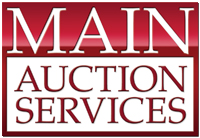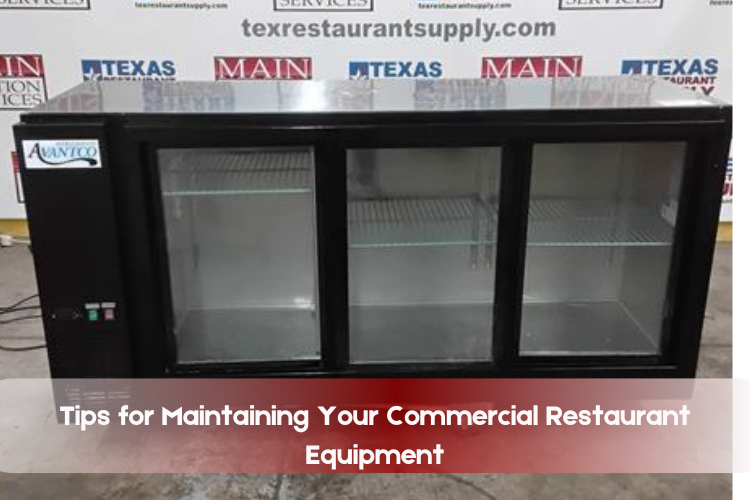Operating a successful restaurant is not just about serving great food and providing excellent customer service – it also involves keeping your commercial restaurant equipment in top-notch condition. Proper maintenance can extend the life of your equipment, improve efficiency, and ensure the safety and quality of food being served to your customers. Whether you have a bustling kitchen in Fort Worth or are looking for restaurant supply in Dallas, understanding how to properly maintain your equipment is crucial to running a smooth operation.
In this article, we’ll walk you through essential tips for maintaining your commercial restaurant equipment and highlight the importance of regular servicing to keep your restaurant equipment running smoothly.
1. Regular Cleaning is Key
One of the simplest yet most effective ways to maintain your commercial restaurant equipment is to keep it clean. Dirt and grime can build up over time, causing parts to break down, and potentially contaminating food.
- Ovens, Grills, and Stoves: Clean these appliances regularly to prevent the buildup of grease and food residue. Use non-abrasive cleaners to avoid damaging the surface. Make sure to clean the interior, vents, and knobs as well, as grease can affect performance and even cause fire hazards.
- Refrigerators and Freezers: Clean the coils of your refrigerators and freezers at least once a month to prevent them from getting clogged with dust and debris. Also, defrost freezers regularly to maintain proper temperature control.
- Dishwashers and Sinks: Regularly inspect and clean your dishwashers and sinks to remove soap residue, grease, and food particles. Dirty sinks can affect drainage and the overall cleanliness of your kitchen.
Investing time in restaurant supply in Dallas for effective cleaning products and tools will ensure that your equipment lasts longer and functions efficiently.
2. Follow the Manufacturer’s Guidelines
Each piece of commercial restaurant equipment comes with specific manufacturer guidelines and instructions regarding maintenance. Always follow these instructions carefully. Manufacturers often provide recommendations for how frequently certain equipment should be serviced, what parts need regular inspection, and what cleaning products are safe to use.
For example, your ice machine may need to be cleaned every six months, or your commercial refrigerator might require annual servicing to check its cooling efficiency. Adhering to these guidelines will help you avoid potential issues and ensure that your equipment remains in peak condition.
When shopping for restaurant supply in Dallas, don’t forget to ask for manuals or maintenance advice from suppliers, which will help you better understand how to care for the equipment you purchase.
3. Inspect and Test Equipment Regularly
Regular inspections of your equipment can help identify any potential issues before they become bigger problems. Set up a maintenance schedule for each piece of commercial restaurant equipment and perform periodic checks. During inspections, focus on:
- Performance: Ensure all equipment is running smoothly and at peak performance. For example, check if the temperature in your oven or refrigerator is consistent and functioning as it should.
- Safety: Make sure that any safety features on your equipment are working properly. This may include gas leaks on grills or stoves, or ensuring that safety shut-off features are operational.
- Wear and Tear: Look for signs of wear, such as broken handles, damaged seals, or rust. Small repairs may seem insignificant at first but can lead to larger, more expensive issues if left unaddressed.
Remember, some suppliers of Fort Worth restaurant equipment may offer regular maintenance services that can help with these inspections.
4. Professional Servicing
While some maintenance tasks can be handled in-house, it’s important to have your commercial restaurant equipment inspected and serviced by a professional technician on a regular basis. Scheduling professional service appointments can help you catch issues that may be difficult to detect on your own.
- Annual Maintenance Check-ups: Many service providers offer annual maintenance packages that include a full inspection of your kitchen equipment. This proactive step can save you a lot of money down the line by preventing breakdowns.
- Repairs and Part Replacements: If your equipment requires any repairs or part replacements, a qualified technician will have the expertise to perform these tasks. Relying on professionals ensures that your equipment is repaired properly and minimizes the risk of future damage.
For restaurant supply in Dallas, consider reaching out to reputable service providers who offer both sales and maintenance services, ensuring that they’re familiar with the specific equipment in your restaurant.
5. Use the Right Cleaning Products
Using the wrong cleaning products on your commercial restaurant equipment can cause damage and void warranties. Always opt for cleaning products that are specifically designed for use in foodservice environments. For example:
- Non-abrasive cleaners: These prevent scratching and damage to surfaces like stainless steel.
- Food-safe degreasers: These are important for cleaning grills, stoves, and deep fryers without leaving harmful residue.
- Sanitizers and disinfectants: These are essential for maintaining hygiene, especially in high-contact areas like countertops, sinks, and food preparation surfaces.
Make sure to purchase your restaurant supply in Dallas from trusted suppliers who offer high-quality cleaning and sanitizing products that are safe for use in commercial kitchens.
6. Maintain Proper Ventilation
Proper ventilation is crucial for maintaining a safe and comfortable working environment in your restaurant. Grease buildup and smoke can cause damage to cooking equipment, not to mention the potential fire hazard.
- Vent Hoods and Exhaust Fans: Clean the filters and exhaust fans regularly. Clogged filters can hinder airflow, making it harder for your ventilation system to function effectively. Depending on your equipment’s usage, consider cleaning the exhaust system every few months.
- Air Filters: If your commercial restaurant equipment includes air filters or air purifiers, make sure to change them according to the manufacturer’s instructions to avoid strain on the equipment.
By maintaining proper ventilation, you ensure that your equipment is running smoothly and efficiently, reducing the likelihood of breakdowns and costly repairs.
7. Ensure Proper Calibration
Many pieces of commercial restaurant equipment require regular calibration to maintain accuracy, particularly those that handle temperature or measuring ingredients. This includes ovens, refrigerators, and coffee machines.
- Thermometers: Regularly calibrate thermometers in your kitchen to ensure that food is being cooked at the proper temperature.
- Ovens and Stoves: Check the temperature settings on your ovens to ensure they are heating evenly and to the correct temperature.
A well-calibrated kitchen helps prevent food safety issues and ensures that your equipment is operating as efficiently as possible.
8. Replace Worn-Out Parts
Over time, even the best commercial restaurant equipment will show signs of wear. Components such as seals, gaskets, and knobs will naturally degrade with heavy use. Replacing these worn-out parts is essential to keeping your equipment functioning smoothly.
- Check for leaks: Leaking gas or refrigerant can cause inefficiency and potential safety hazards.
- Replace worn seals and gaskets: These are crucial for maintaining the proper temperature and preventing energy loss.
If you're in need of specific restaurant equipment parts, many Fort Worth restaurant equipment suppliers offer replacement parts for various types of kitchen equipment. Always use genuine parts to ensure compatibility and performance.
9. Train Your Staff
Proper training for your staff on how to use and maintain commercial restaurant equipment can prevent misuse and minimize wear and tear. Educate your team about:
- Proper operating procedures: Ensure that everyone knows how to use the equipment properly to avoid unnecessary stress or damage.
- Cleaning protocols: Make sure your staff understands the importance of cleaning equipment after every shift to prevent buildup that could cause equipment malfunctions.
- Safety measures: Train your staff on the safety features of your equipment and ensure that they are aware of the proper steps to take in case of an emergency.
10. Keep a Maintenance Log
Maintaining a maintenance log for your commercial restaurant equipment is an excellent way to keep track of when each piece of equipment was last serviced, cleaned, or repaired. This log will help you stay on top of regular maintenance and ensure that nothing falls through the cracks.
A well-organized maintenance log can also be beneficial when it comes to warranty claims or if you decide to sell your equipment in the future. Buyers will appreciate the fact that the equipment has been well cared for and regularly serviced.
Conclusion
Maintaining your commercial restaurant equipment is crucial for the long-term success of your business. Regular cleaning, following manufacturer guidelines, and scheduling professional maintenance are all key components of keeping your equipment running smoothly. Additionally, using high-quality cleaning products, calibrating your equipment, and replacing worn parts will help ensure efficiency and safety in your kitchen. Whether you’re purchasing restaurant supply in Dallas or looking for Fort Worth restaurant equipment, always prioritize maintenance to protect your investment and keep your restaurant operating efficiently.







